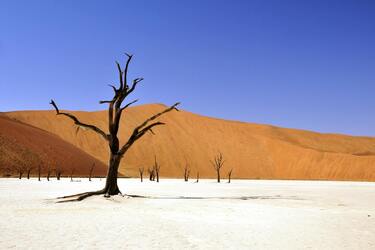Biologists told which plant would save humanity in the event of nuclear war

In the event of a nuclear war with thousands of warheads, about 150 teragrams of soot would be released into the Earth's atmosphere. This could block sunlight for years, leading to global cooling and famine.
However, a new study shows that seaweed may hold the key to humanity's survival under such conditions, Phys.org writes.
An international team of scientists found that algae such as Gracilaria tikvahiae have enough resilience to survive and thrive in the oceans even after a nuclear winter. Their model of algae growth was built on data about weather conditions during nuclear winter.
Algae can survive in the dark by utilizing the sugar reserves they accumulated during daylight. They can withstand low temperatures and high salt concentrations.
Scientists say investing in seaweed farms could prevent global hunger in scenarios where sunlight is drastically reduced.
"Seaweed is a versatile source of food and energy that could be key in large-scale disasters when other plants become scarce," the report said.
Algae are a rich source of protein, minerals, vitamins, essential amino acids and fatty acids. They can be used for the production of biodiesel and other types of renewable energy.
Earlier, scientists solved the mystery of the mysterious "worms" that line up in huge rows. It turned out that these are larvae of a new, unknown species of soil mosquitoes.
Want to receive the most up-to-date news about the war and events in Ukraine - subscribe to our Telegram channel!
